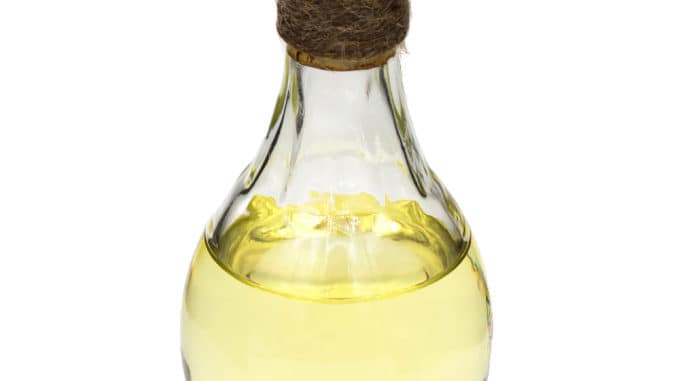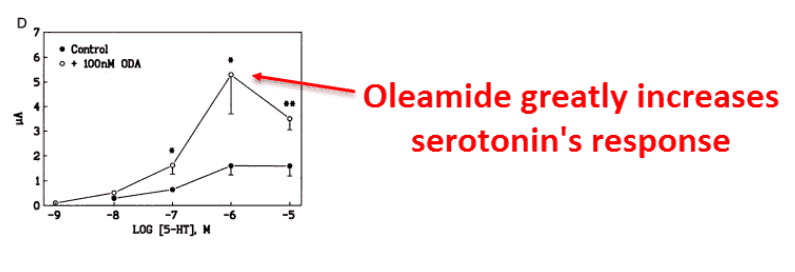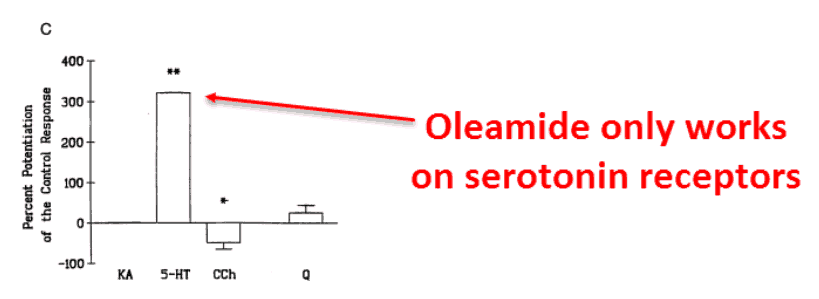
[cmamad id=”21451″ align=”center” tabid=”display-desktop” mobid=”display-desktop” stg=””]
How to avoid this common fat and why you must…
—-Important Message—-
This is the type of fat doctors aren’t warning you about
And why aren’t they?
Because doctors don’t know about it… They aren’t taught this in school…
Big Pharma hopes and prays that you never find out about this deadly type of fat…
Because if you did, you’d never trust your doctor or the medical establishment ever again.
This fat is the true cause of cancer and virtually all heart disease.
It causes type 2 diabetes.
And it attacks the Leydig cells that make testosterone, so men find their T-levels plummet.
It’s a terrible fat and nobody is warning men about it.
Here is this specific fat you must avoid.
————
This Type of Fat Causes Cancer, New Study Finds
What oil do you cook with?
Linoleate-rich seed oils, such as those from the soybean and canola plants, can powerfully contribute to cancer.
And products labeled generically as “vegetable oil” are always very high in omega−6 fatty acids – the only carcinogenic fatty acids, and certainly the most important to avoid.
The short-chained saturated fatty acids – such as in coconut oil and butter – are metabolized very quickly, similar to glucose.
And saturated fatty acids are also totally free of hormonal effects.
Besides the hormonal omega−6 fatty acids, another fatty acid has specific and powerful effects on the body.
This oleic acid derivative apparently acts selectively on serotonin receptors – and only the oleic derivative can do this.
As first reported in 1995:

After analyzing the cerebrospinal fluid of sleep-deprived cats, these researchers discovered a new “lipid hormone.”
They found higher levels of what was essentially oleic acid…
But with very subtle differences – the carboxyl group was modified slightly, which made it an amide group instead:

Although effective only in this slightly modified form, dietary oleic acid is still the main precursor for this molecule… And our brain enzymes perform this modification quickly.
After researchers injected lab rats with this oleic acid derivative (oleamide), the rats fell asleep.
This was remarkable on two counts…
- The low dose required to accomplish this
- The absence of the negative results they found with all the other fatty acid amides
So it’s specific and it’s powerful – and olive oil contains its precursor in high concentrations.
And just one year later, a team of Chilean researchers took this research one step further:

They used egg cells (because of their relatively large size) – and injected them with DNA for neurotransmitter receptors.
In this way, they could make the cell express whatever type of receptor they wanted…
And they tested the ones involved in sleep.
They used serotonin receptors because serotonin promotes sleep at times.
Tryptophan, serotonin’s direct precursor, is even commonly known for this (Thanksgiving Dinner…turkey is high in tryptophan).
They found that oleamide powerfully increases the effects of serotonin on cells.
It did this through a serotonin receptor: the 5-HT₂ receptor:

And they only needed very low concentrations of oleamide to do this – very similar to what’s in the human brain.
This oleic acid derivative potentiated serotonin’s response by increasing the magnitude of the cell current it produces.
This is reliable, and the same phenomenon had also been observed by measuring cAMP (cyclic adenosine monophosphate) and IP₃ (inositol trisphosphate) release.
(Our cells use both cAMP and IP₃ for communication.)
“The maximal increase of the 5-HT response was observed with 100 nM oleamide and amounted to a 5- to 6-fold increase…”
They also demonstrated the high specificity shown by earlier researchers…
They tried almost every other oleic acid derivative, including trans-oleic acid, and none of them had any effect.
And besides showing the uniqueness of oleamide in particular – among the fatty acid amides – they showed that it was completely unique to serotonin’s receptors:

A few other fatty acid amides also worked, but only slightly – none had anywhere near the potency of oleic acids.
But, surprisingly, one of them turned out to be a “serotonin attenuator” – or an antagonist of serotonin’s effect…
This was octadecanamide, the amide derivative of stearic acid.
It’s an actual fatty acid amide and it worked in the opposite direction.
So that is another feather in the hat for stearic acid.
Stearic acid is also the only fatty acid consistently found to be protective against cancer.
And now there is good reason to think it is anti-serotonergic.
“In this regard, it is interesting that octadecanamide, a compound derived from the stearate, a prevalent brain fatty acid, had effects on the 5-HT receptor that were opposite to those of oleamide.”
I think oleamide could explain the stereotypical Italian personality nearly perfectly – and that culture consumes olive oil almost religiously.
You know the cliché: rude, impulsive, irrational, and overly emotional – essentially all the characteristics of high serotonin.
Although oleamide doesn’t technically raise serotonin, it greatly potentiates its response – it makes serotonin act more like serotonin.
This is because serotonin and oleamide don’t actually compete with each other for a binding site…
Both serotonin and oleamide bind to separate segments of the 5-HT₁ and 5-HT₂ receptors.
The fatty acids you eat today can arrive in your brain within minutes to hours after ingestion.
And it has been shown that oleic acid will cross the blood-brain barrier intact.
So, besides those foods having a high tryptophan ratio, you could also expect those with a high oleic acid ratio to impact psychology…
And in nearly the same way.
The serotonin psychology is generally not a desirable state to be in… It is NOT a good headspace.
Sure it can make a person “happy” – but that’s only because it makes you lose your higher mental functions.
The fact that oleamide can increase serotonin’s effect on a synapse by over 500%, even at nanomolar concentrations, makes it the most psychoactive lipid.
“Hence, oleamide’s actions appear to be specific to 5-HT receptors, consistent with the findings of Toro and Harris…”
And the brain has a “lipid pool” that is always in flux…
Fatty acids stored as phospholipids can be liberated, metabolized, elongated, stored again – and could even become oleamide if the lipid is oleic acid.
So long-term oil consumption can have resounding effects.
And this could help to explain the serotonergic effects of having high estrogen…
This steroid hormone is well known for its ability to induce the transcription of stearoyl–CoA desaturase.
And stearoyl–CoA desaturase converts stearic acid into oleic acid, increasing cell membrane fluidity.
This property of estradiol is sometimes used to explain its observed carcinogenic effects.
The more unsaturated a lipid is, the more membrane fluidity it causes.
Cell membrane fluidity is always associated with a higher rate of proliferation, and integral to estradiol’s function.
This is done by making oleic acid – simultaneously increasing the concentration of oleamide’s direct precursor.
“…it highlights that the effects of oleamide at the 5-HT₂ receptor are surprisingly selective for the endogenous lipid.”
—-Important Message—-
5 signs of prostate cancer
Prostate cancer signs include difficulty peeing, having to get up multiple times a night to pee, feeling like you didn’t get rid of all your urine…
But these are also signs of “benign” prostate inflammation… So how do you know whether you’re headed for cancer, or whether it’s just a bit uncomfortable?
I found out the answer to this and MUCH more…
I found some little-known warning signs, and also a way to get rid of most prostate cancer cheaply and without terrible virility-killing procedures.
————

- Cravatt, B. "Chemical characterization of a family of brain lipids that induce sleep." Science (1995)
https://www.researchgate.net/profile/Gary_Siuzdak/publication/15427972_Chemical_characterization_of_a_family_of_brain_lipids_that_induce_sleep/links/02e7e519e376fe6856000000/Chemical-characterization-of-a-family-of-brain-lipids-that-induce-sleep.pdf - Huidobro-Toro, J. "Brain lipids that induce sleep are novel modulators of 5-hydroxytrypamine receptors." Proceedings of the National Academy of Sciences (1996)
http://www.pnas.org/content/pnas/93/15/8078.full.pdf - Thomas, E. "Unique allosteric regulation of 5-hydroxy- tryptamine receptor-mediated signal transduction by oleamide." Proceedings of the NAS (1997)
https://www.researchgate.net/profile/Monica_Carson/publication/13839238_Unique_allosteric_regulation_of_5-hydroxytryptamine_receptor-mediated_signal_transduction_by_oleamide/links/0c96051e422ee44531000000/Unique-allosteric-regulation-of-5-hydroxytryptamine-receptor-mediated-signal-transduction-by-oleamide.pdf - Boger, D. "Structural requirements for 5-HT₂ and 5-HT₁ serotonin receptor potentiation by the biologically active lipid oleamide." Proceedings of the NAS (1998)
http://www.pnas.org/content/95/8/4102.short
- Antitumor effect of oleic acid; mechanisms of action: a review. - NCBI
https://www.ncbi.nlm.nih.gov/pubmed/23588432 - How Olive Oil Protects Against Breast Cancer: Northwestern University
https://www.northwestern.edu/newscenter/stories/2005/01/oleic.html

Leave a Reply